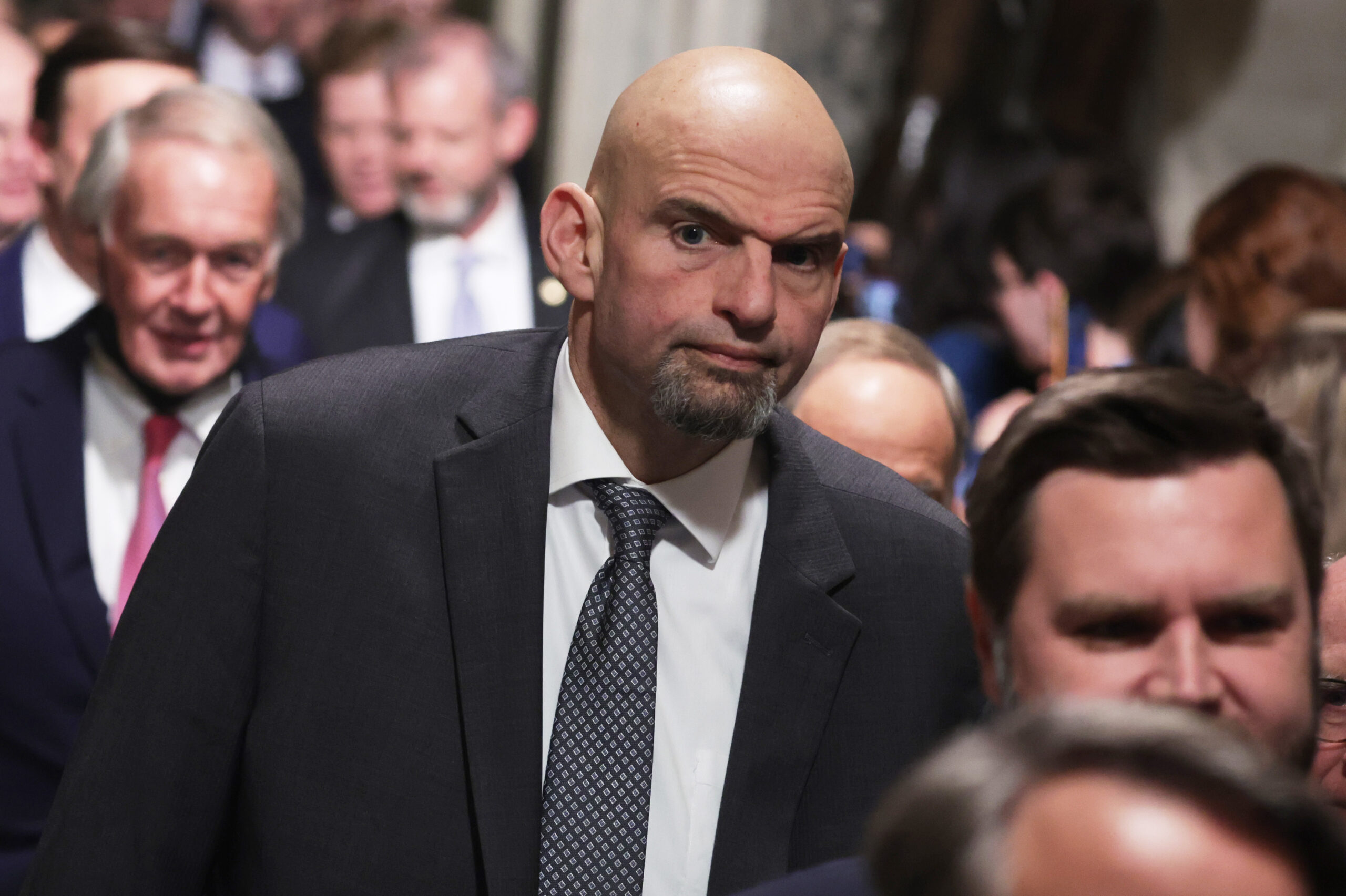In a surprising move, Sen. John Fetterman (D-Pa.) made headlines Tuesday as the first Democratic U.S. senator to post on President-elect Donald Trump’s social media platform, Truth Social. His post not only broke political norms but also sparked widespread debate by condemning the legal cases against Trump and Hunter Biden as politically motivated and calling for pardons in both instances.
Fetterman’s Controversial Truth Social Post
Fetterman’s inaugural post on Truth Social read:
\”My first truth. The Trump hush money and Hunter Biden cases were both bulls—, and pardons are appropriate. Weaponizing the judiciary for blatant, partisan gain diminishes the collective faith in our institutions and sows further division.\”
The senator accompanied his statement with a screenshot of an MSNBC headline detailing Manhattan District Attorney Alvin Bragg’s opposition to Trump’s motion to dismiss charges related to his hush money case. Trump, who was convicted earlier this year on 34 felony counts, has had his sentencing postponed indefinitely following his November election victory.
Fetterman’s post came on the heels of President Biden’s controversial decision to pardon his son, Hunter Biden. The pardon covered offenses from January 2014 to December 2024, including convictions for tax-related felonies and illegal firearm possession. The move was met with significant backlash, even from prominent Democrats and media outlets such as The Washington Post and The New York Times.
A Call for Unity Amid Division
In both his Truth Social post and recent public appearances, Fetterman argued that the legal cases against Trump and Hunter Biden were examples of partisan weaponization of the judiciary. He made a similar statement during an episode of The View, saying:
\”I think it\’s undeniable that the case against Hunter Biden was really politically motivated. But I also think it’s true that the trial in New York for Trump was political as well. Now, in both cases, I think a pardon is appropriate.\”
Fetterman elaborated on the broader implications of these cases, asserting that they have eroded public trust in American institutions:
\”America’s confidence in these kinds of institutions has been damaged by these kinds of cases, and we cannot allow these kinds of institutions to be weaponized against our political opponents.\”
Reactions to Fetterman’s Statement
Fetterman’s remarks have sparked a firestorm of reactions across the political spectrum. Supporters praised his willingness to challenge partisan narratives and advocate for depoliticizing the justice system. Critics, however, accused him of equating vastly different cases and undermining the rule of law.
The Manhattan DA, Alvin Bragg, defended the prosecution of Trump, arguing that dismissing the case would harm public confidence in the justice system. Meanwhile, opponents of Hunter Biden’s pardon argue that it undermines accountability and sets a dangerous precedent for future administrations.
Breaking Partisan Barriers on Truth Social
Fetterman’s decision to join Truth Social, a platform predominantly associated with Trump supporters, is seen as an unusual but deliberate effort to engage with a broader audience. By addressing controversial issues on a platform often dismissed by Democrats, the Pennsylvania senator appears to be carving a unique path in the deeply polarized political landscape.
Implications for Public Trust
Fetterman’s condemnation of these legal cases raises critical questions about the role of the judiciary in politically charged investigations. His call for bipartisan accountability underscores the growing concern that judicial processes are increasingly viewed as tools for political retribution.
As debates over these high-profile cases continue, Fetterman’s comments highlight a broader need to restore public trust in America’s institutions and prevent their weaponization for partisan purposes.
Sources:
- Fox News: Fetterman’s First Truth Social Post
- MSNBC: Alvin Bragg Defends Trump Prosecution
- CNN: Hunter Biden Pardon Sparks Controversy

